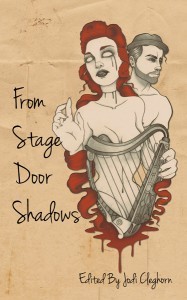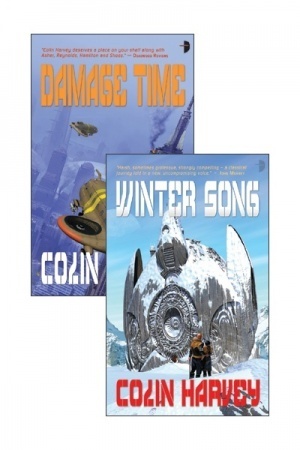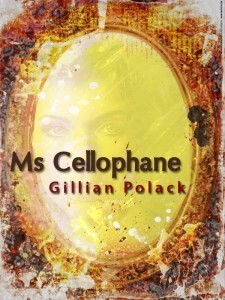Alan Baxter's Blog, page 61
September 6, 2012
The ongoing mugging
 So you may remember that I was very saddened to lose my long-serving coffee mug. I lamented at length here. Many people were very supportive and offered me much appreciated condolences. I used the tragedy to order myself a new Aperture Science mug from the Valve store. But I’m sure you’ve by now looked at the picture to the left and thought, “Fuck me, that’s a sumbitch of a mug!” And you’re right. It really is. I have to thank the awesome Brendan Jones for the very generous gift of that knuckle-duster mug. I’ve been working a lot with Jonesy lately on the development of Leornian, a videogame for the education sector. You can find Jonesy on Twitter at @jonesytheteacher
So you may remember that I was very saddened to lose my long-serving coffee mug. I lamented at length here. Many people were very supportive and offered me much appreciated condolences. I used the tragedy to order myself a new Aperture Science mug from the Valve store. But I’m sure you’ve by now looked at the picture to the left and thought, “Fuck me, that’s a sumbitch of a mug!” And you’re right. It really is. I have to thank the awesome Brendan Jones for the very generous gift of that knuckle-duster mug. I’ve been working a lot with Jonesy lately on the development of Leornian, a videogame for the education sector. You can find Jonesy on Twitter at @jonesytheteacher
Seriously, how brutal is that mug? It’s the kind of mug that punches caffeine directly into your face and then drags your brain down a dark alley to roll it for words and loose change. I’m almost a little bit afraid of the damn thing. Or, I would be if I wasn’t so hardcore. It’s a big mug too, holding a proper writer’s serving of coffee. Here I am, very happy with my new mug.
One of my favourite aspects of this new caffeine receptacle is the small print on the base that says. “THIS IS NOT A WEAPON.” Oh, really? I beg to differ. I could seriously fuck a dude up with this thing. And so now to fire up and churn out word babies soaked in recently bashed coffee.
.
September 4, 2012
Upgrading and the passing of a technological friend
This may be the last blog post I write on my old Dell XPS M1530 laptop. I’m a little sad. This old wordmill has served me very well. It’s helped me produce at least half a million words of fiction, probably a lot more than that. I can’t be arsed to work it out. It’s done an awful lot more work in terms of non-fiction, online interaction, artwork, book design, cover design, publishing (of my own and other people’s work), video editing, photos and music. The list goes on. But the old beast is showing signs of age. I decided to act pre-emptively, bit the bullet and bought a new laptop. Here’s the old XPS ready to write this post, and below it, the new one with data downloading to the hard drive.
I couldn’t afford a new XPS this time around, but I’ve got myself a damn fine Dell Inspiron. I’m currently transferring data and software, getting it all set up for the tasks ahead of it. And there will be many. I’m halfway through the current novel, got all kinds of other projects going on and who knows what I’ll be up to over the next few years. Once it’s up and ready I can mothball the old XPS, letting it retire happy rather than shit itself and die on me, causing untold grief. It’s best for everyone.
After the recent loss of my favourite mug, this certainly feels like a time of transition. Forced transition, but then all transition tends to be forced, at least with me. I’m a creature of habit. My wife calls me a stubborn old badger and she refers to my office as my cave. I once pointed out that if I was a badger, the office was surely my set. She said no, I’m a cave badger. Fair enough. But I don’t change unless I have to, so sometimes having change forced upon me can be a good thing. Not that I can afford this current change, but needs must when the devil pisses in your ear. It never hurts to give things a good shake-up.
So there’s a new mug on its way to me, bought gleefully from the Valve store. It’s an Aperture Science mug that I’m geeking out about receiving. If you don’t know what that is, shame on you. Go and play Portal and Portal 2 this fucking instant. Go on. GO! Soon the new laptop will be ready to become the main machine in my life (don’t tell my motorbike I said that) and I’ll drink hot, sweet caffeine from my Aperture Science mug and I will birth new and fetid word babies for your reading pleasure. From my cave.
Vale, old XPS, we won’t forget you. Welcome to the word farm, new Inspiron, prepare yourself for battle!
.
September 2, 2012
From Stage Door Shadows
 I’m very pleased to have a story in this anthology, which is launching very soon. It’s a cool concept, from editor Jodi Cleghorn. She puts together these Literary Mix Tapes anthologies, which are all heavily based on music. In this case, each contributing author got a line from the Elton John song “Tiny Dancer”. Short speculative fiction stories were written using those lines as a prompt.
I’m very pleased to have a story in this anthology, which is launching very soon. It’s a cool concept, from editor Jodi Cleghorn. She puts together these Literary Mix Tapes anthologies, which are all heavily based on music. In this case, each contributing author got a line from the Elton John song “Tiny Dancer”. Short speculative fiction stories were written using those lines as a prompt.
My story is called “Fear Is The Sin” based on the song lyric, “Jesus freaks, out in the street.” Here’s the full blurb:
Editor: Jodi Cleghorn
Original Artwork: Blake Byrnes
Cover Design: eMergent Publishing
ISBN: 978-0-9871126-8-2 (paperback)
978‐0‐9871126‐9-‐9 (eBook)Twenty-six authors trade Tiny Dancer’s California-blessed lyrics for the shadowed recesses of stages large and small in From Stage Door Shadows, a speculative fiction homage to the darkness just beyond the limelight of the entertainment industry.
The stories re‐introduce the women Benny Taupin wrote about and Elton John sang about: blue jean baby, LA lady, the band’s seamstress, the music man’s wife and the girl dancing in the sand, along with a stellar cast of musicians, singers, thespians, fans, managers, dancers, DJs, magicians, talent show contestants, stars and has-beens.
From vaudeville to opera, piano bar and street corner, hotel suite and beauty pageant, From Stage Door Shadows is a backstage pass to where dreams of fame, fortune and fulfillment live and die in a heartbeat.
Here’s the full ToC:
Rites of Spring – Graham Storrs
Torch song – Andrew J. McKiernan
Fear is the Sin – Alan Baxter
Candentia – Clive Martyn
Luminaire – Joanne Anderton
House of the Cantomancer – Jennifer Muirhead
White Poppy Serenade – S.G. Larner
Time Signature – Melanie Saward
Tiny Dancer – Emma Kerry
Sing to Me – Laura Meyer
Discovering the Gift – Len Lambert
Indigo – Jodi Cleghorn
The Last Illusion – Rus VanWestervelt
Dancing in the Sand – Rebecca L. Dobbie
A Perfect Evening – Sam Adamson
My Moment – Theresa Milstein
Music Box – Laura Eno
Open Audition – Devin Watson
A Living Doll – Monica Marier
The Last of the Undead Beats – Daniel Wynne
The Gods Are Just – Janette Dalgliesh
The Music Man – Lisamarie Lamb
The Colour of Blood – Cath Barton
Velvet – J.M. Donellan
The Twilight Dream – Tom Dullemond
Muted – Jessica Bell
The official launch will be at Smith’s Alternate Bookstore in Canberra on Saturday 29th September, as part of Conflux 8. I’ll be there for the launch, so come along and join in the fun if you can.
.
2012 Hugo Awards
The 2012 Hugo Awards were presented at Chicon 7 (Worldcon) today, in Chicago, Illinois. The host was John Scalzi and this year’s base was designed by Deb Kosiba. The results are listed below, with the full list of nominations and the winners in bold. Congratulations to all the winners and nominees.
Best Novel
Among Others, Jo Walton (Tor)A Dance With Dragons, George R. R. Martin (Bantam Spectra)Deadline, Mira Grant (Orbit)Embassytown, China Miéville (Macmillan / Del Rey)Leviathan Wakes, James S. A. Corey (Orbit)Best Novella
Countdown, Mira Grant (Orbit)“The Ice Owl”, Carolyn Ives Gilman (The Magazine of Fantasy & Science Fiction)“Kiss Me Twice”, Mary Robinette Kowal (Asimov’s)“The Man Who Bridged the Mist”, Kij Johnson (Asimov’s)“The Man Who Ended History: A Documentary”, Ken Liu (Panverse 3)Silently and Very Fast, Catherynne M. Valente (WSFA)Note: 6 nominees due to tie for final position.
Best Novelette
“The Copenhagen Interpretation”, Paul Cornell (Asimov’s)“Fields of Gold”, Rachel Swirsky (Eclipse Four)“Ray of Light”, Brad R. Torgersen (Analog)“Six Months, Three Days”, Charlie Jane Anders (Tor.com)“What We Found”, Geoff Ryman (The Magazine of Fantasy and Science Fiction)Best Short Story
“The Cartographer Wasps and the Anarchist Bees”, E. Lily Yu (Clarkesworld)“The Homecoming”, Mike Resnick (Asimov’s)“Movement”, Nancy Fulda (Asimov’s)“The Paper Menagerie”, Ken Liu (The Magazine of Fantasy and Science Fiction)“Shadow War of the Night Dragons: Book One: The Dead City: Prologue”, John Scalzi (Tor.com)Best Related Work
The Encyclopedia of Science Fiction, Third Edition, edited by John Clute, David Langford, Peter Nicholls, and Graham Sleight (Gollancz)Jar Jar Binks Must Die…and other Observations about Science Fiction Movies, Daniel M. Kimmel (Fantastic Books)The Steampunk Bible: An Illustrated Guide to the World of Imaginary Airships, Corsets and Goggles, Mad Scientists, and Strange Literature, Jeff VanderMeer and S. J. Chambers (Abrams Image)Wicked Girls (CD), Seanan McGuireWriting Excuses, Season 6 (podcast series), Brandon Sanderson, Dan Wells, Howard Tayler, Mary Robinette Kowal, and Jordan SandersonBest Graphic Story
Digger, by Ursula Vernon (Sofawolf Press)Fables Vol 15: Rose Red, by Bill Willingham and Mark Buckingham (Vertigo)Locke & Key Volume 4: Keys To The Kingdom, written by Joe Hill, illustrated by Gabriel Rodriguez (IDW)Schlock Mercenary: Force Multiplication, written and illustrated by Howard Tayler, colors by Travis Walton (The Tayler Corporation)The Unwritten (Volume 4): Leviathan, created by Mike Carey and Peter Gross, written by Mike Carey, illustrated by Peter Gross (Vertigo)Best Dramatic Presentation, Long Form
Captain America: The First Avenger, screenplay by Christopher Markus and Stephan McFeely; directed by Joe Johnston (Marvel)Game of Thrones (Season 1), created by David Benioff and D. B. Weiss;written by David Benioff, D. B. Weiss, Bryan Cogman, Jane Espenson, and George R. R. Martin; directed by Brian Kirk, Daniel Minahan, Tim van Patten, and Alan Taylor (HBO)Harry Potter and the Deathly Hallows Part 2, screenplay by Steve Kloves; directed by David Yates (Warner Bros.)Hugo, screenplay by John Logan; directed by Martin Scorsese (Paramount)Source Code, screenplay by Ben Ripley; directed by Duncan Jones (Vendome Pictures)
Best Dramatic Presentation, Short Form
Doctor Who, ”The Doctor’s Wife”, written by Neil Gaiman; directed by Richard Clark (BBC Wales)“The Drink Tank’s Hugo Acceptance Speech”, Christopher J Garcia and James Bacon (Renovation)Doctor Who, ”The Girl Who Waited”, written by Tom MacRae; directed by Nick Hurran (BBC Wales)Doctor Who, ”A Good Man Goes to War”, written by Steven Moffat; directed by Peter Hoar (BBC Wales)Community, ”Remedial Chaos Theory”, written by Dan Harmon and Chris McKenna; directed by Jeff Melman (NBC)Best Semiprozine
Apex Magazine, edited by Catherynne M. Valente, Lynne M. Thomas, and Jason SizemoreInterzone, edited by Andy CoxLightspeed, edited by John Joseph AdamsLocus, edited by Liza Groen Trombi, Kirsten Gong-Wong, et al.New York Review of Science Fiction, edited by David G. Hartwell, Kevin J. Maroney, Kris Dikeman, and Avram GrumerBest Fanzine
Banana Wings, edited by Claire Brialey and Mark PlummerThe Drink Tank, edited by James Bacon and Christopher J GarciaFile 770, edited by Mike GlyerJourney Planet, edited by James Bacon, Christopher J Garcia, et al.SF Signal, edited by John DeNardoBest Fancast
The Coode Street Podcast, Jonathan Strahan & Gary K. WolfeGalactic Suburbia Podcast, Alisa Krasnostein, Alex Pierce, and Tansy Rayner Roberts (presenters) and Andrew Finch (producer)SF Signal Podcast, John DeNardo and JP Frantz (presenters), Patrick Hester (producer)SF Squeecast, Lynne M. Thomas, Seanan McGuire, Paul Cornell, Elizabeth Bear, and Catherynne M. ValenteStarShipSofa, Tony C. SmithBest Editor, Long Form
Lou AndersLiz GorinskyAnne Lesley GroellPatrick Nielsen HaydenBetsy WollheimBest Editor, Short Form
John Joseph AdamsNeil ClarkeStanley SchmidtJonathan StrahanSheila WilliamsBest Professional Artist
Dan dos SantosBob EggletonMichael KomarckStephan MartiniereJohn PicacioBest Fan Artist
Brad W. FosterRandall MunroeSpring SchoenhuthMaurine StarkeySteve StilesTaral WayneNote: 6 nominees due to tie for final position.
Best Fan Writer
James BaconClaire BrialeyChristopher J. GarciaJim C. HinesSteven H SilverThe John W. Campbell Award for Best New Writer
Mur LaffertyStina LeichtKaren LordBrad R. TorgersenE. Lily Yu
.
August 28, 2012
Planet of the Knob Heads
I had to share this one. Thanks for my friend, Cat Sparks, for pointing it out. Although I’m somewhat concerned that she saw it and thought of me. My favourite part? Other than the truly awesome title, note how it’s a “new book length novel“! Brilliant. (Cat found it here.)
August 27, 2012
Paid reviews hurt everyone, except those being paid
There’s a caveat to the title of this post, explained later, but I don’t mind a bit of sensationalism. So, this has come around again. It’s a subject that has cropped up a few times and usually makes the news cycle once in a while. It basically boils down to predatory fuckwits offering to write glowing reviews of any book (which they won’t bother to read) in exchange for cashmoney. Idiot authors jump on the bandwagon and buy those reviews in a desperate attempt to get their work noticed.
Most recently there’s this guy selling reviews for $99. Or 20 reviews for $499. For a cool $999 he would write you 50 reviews. On the one hand you have to admire the entrepreneurial spirit. On the other hand, you have to say, “Fuck you, pond scum, why are you devaluing the work of legitimate authors and reviewers everywhere!?” To which he’d reply, “Because it makes me around $28,000 a month!” and you can’t really argue with that. Well, you can, but clearly there are no ethics or morals involved here, so applying our own is pretty pointless. His business has failed, thankfully. More on that later.
Of course, it’s not just this guy. From that article:
[Bing Liu, a data-mining expert at the University of Illinois, Chicago] estimates that about one-third of all consumer reviews on the Internet are fake. Yet it is all but impossible to tell when reviews were written by the marketers or retailers (or by the authors themselves under pseudonyms), by customers (who might get a deal from a merchant for giving a good score) or by a hired third-party service.
Well, boil my nuts in the tears of angels, what’s the fucking point? Why don’t we all just buy the reviews we need? The guy in the article linked above has some of the best weasel words I’ve ever heard. How’s this:
“I was creating reviews that pointed out the positive things, not the negative things. These were marketing reviews, not editorial reviews.”
The fuck does that mean, exactly? He’s likening the reviews to back cover blurbs, but that’s bollocks. Reviews are valuable because they’re impartial. We know that blurbs aren’t. He can “reason” it out any way he likes, he knows he’s lying. Misrepresentation.
Anyway, this particular story has a happy ending. The business was ratted out and subsequently failed, for which we can be thankful. The guy says he regrets his venture into what he called “artificially embellished reviews”. Which is good. At least he realises that what he did was wrong, so there might be hope for humanity yet. Shame he couldn’t admit even then that he was lying and misleading people. Just “artificially embellishing”, but there you go.
Here’s the thing, as far as I’m concerned. Paying for a review is not necessarily a bad thing. We all want to get noticed. We all want our work to fall before the eyes of more readers and reviews definitely help that. I’m always going on about reviewing. If you read something, review it! Two lines and a star rating at Amazon and Goodreads can make a massive difference. People are really busy and everyone needs to make a buck, so someone charging money for reviews is not neecessarily a bad thing. I’ve said that twice now in this paragraph and there’s one very important word that I’ve deliberately left out. That word is “good”. Paying for good reviews sucks Satan’s rancid balls, because you’re corrupting the system and devaluing the work of everyone. Paying someone to read your book and honestly review it, however, is fine. That’s a very important distinction.
I’ve never done it, but I wouldn’t completely write off the possibility. Getting reviews is hard and if someone is prepared to take a free book and a small fee, with the guarantee that they’ll leave an honest review in a variety of places, I see that as a good thing. Sure, you might be paying for someone to tell you, and the entire internet, that your writing sucks, your book is crap and no one should buy it unless they run out of toilet paper. But that’s what you always do when you send a book off for review. And when you do send it off, it might never actually get reviewed. Adding a few bucks to ensure it does makes sense. And if you’re told it’s shit, you know to try harder next time. Maybe listen to the advice of your writers’ group and beta readers. Or get new ones. Or something. Just don’t pay some schmuck to guarantee you a good review. You’re cheating your future readers, you’re cheating yourself, you’re cheating the very fucking concept of honesty. And the only one who really benefits is the person charging you for their artificially glowing review. If your book is good enough, it should hopefully get some good reviews all on its own. Regardless, it should garner some honest reviews over time. Hassle people about reviewing it. When people tell you they enjoyed it, ask them politely, ever so nicely, prettyplease can they put a quick review somewhere.
But, most importantly of all, please honestly review what you read. Lead by example. Make it a habit to add a line or two and a rating on a handful of sites every time you finish a book. Or even just one site of choice, like Goodreads. Whether you like it or not. A broad range of honest reviews will do wonders and takes no time at all. And if everyone got into that habit, we’d have fewer predators out there using sock puppets (multiple fake online personas) to leave bullshit reviews. And when you do find those people, don’t grab a pitchfork and a gang of friends and give them a good, old-fashioned online lynching. Why waste your time? Report them to the sites in question and let the policies of those sites deal with them. Then get on with your day, read a book and review it.
We love you when you review our work. Don’t let the sharks spoil it for everyone. Now I’m off to Goodreads to fill in a few gaps in my own reviewing.
(And if you’ve read any of my books, prettyplease can you put a quick review somewhere? And if you want to read my books and will leave me a review, drop me a line and I’ll send you ecopies for nothing, if you promise to leave an honest review at Goodreads and Amazon. Can’t say fairer than that, eh?)
.
August 24, 2012
A Killer Among Demons from Dark Prints Press
I’m very happy to announce that my short horror/crime story, The Beat Of A Pale Wing, has been accepted by editor, Craig Bezant, for his anthology, A Killer Among Demons, to be published by Dark Prints Press around April 2013.
From the website: A Killer Among Demons aims to encapsulate the deep, intriguing, and twisted tales that arise from the wonderful combination of paranormal/supernatural crime.
I’m very happy to be in this book and trust Craig to put together an excellent selection of yarns. I’ll post more information about it as I learn more. Now please excuse me while I Snoopy dance.
.
August 20, 2012
Farewell my old friend
 A wet hand, a moment’s inattention and tragedy. Disaster struck! My favourite coffee mug is dead. Broken. Gone. This might seem like an over-reaction to people who don’t understand the attachment a writer can have to their favourite mug. Coffee is the fuel of writing – the actual energy used in the production of words. Along with alcohol, tears, angst and blind pig-headed stubbornness, it’s how stories are born. Word babies gestate in a sea of caffeine.
A wet hand, a moment’s inattention and tragedy. Disaster struck! My favourite coffee mug is dead. Broken. Gone. This might seem like an over-reaction to people who don’t understand the attachment a writer can have to their favourite mug. Coffee is the fuel of writing – the actual energy used in the production of words. Along with alcohol, tears, angst and blind pig-headed stubbornness, it’s how stories are born. Word babies gestate in a sea of caffeine.
My wife bought me this mug some years ago. It holds nearly two palrty “normal” sized mugs worth of coffee. It’s round and slightly rough to the touch, a tactile experience. It’s sat beside my keyboard for hundreds of thousands of words. I’ve cupped its reassuring bowl in my palms as I’ve stared disconsolately at the virtual page. It’s steamed gently beside me as I’ve researched, read, muttered to myself while staring at the walls. It really is an old friend. And now it’s broken. I know it was an accident, but I feel a terrible sense of guilt along with the loss at the moment. I loved that old mug, and I dropped it.
There’s a curl of mouse cord on my desk that looks so empty now. It’s where my mug would sit. I want another coffee, but I feel as though I can’t, there’s nothing to hold it. My wife remembers the market where she bought it for me and next time that market comes around we’re going to see if I can get another. But it will never be the same.
When I first reported this terrible tragedy on Twitter, Angela Slatter said, “Noo! Quick, dance widdershins around the remains then throw coffee grounds over your left shoulder to ward off bad writer hoodoo.”
To which my initial response was, OH MY GODS IS THAT A THING!?
So I’ve done that ritual now. You know, just in case. I’ll have to soldier on with a temporary mug while I try to deal with the loss. Today is a writing day. I’ve been for a run with my wife and dog, done some bits and pieces that needed doing and now I plan to keep my arse parked here until there are 5,000 new words on the novel in progress. I just hope I can do it without my old pal.
Vale, mug. You were one of a kind.
.
August 16, 2012
Colin Harvey Memorial Ebook Bundle from Angry Robot – All Proceeds to Charity
 Angry Robot author, Colin Harvey, died of a massive stroke on August 16th 2011, aged just 50.
Angry Robot author, Colin Harvey, died of a massive stroke on August 16th 2011, aged just 50.
To mark the one year anniversary of his passing, and to continue to bring his work to the wider audience it so richly deserves, Angry Robot Books are offering a bundle of Colin’s ebooks – his two Angry Robot novels, Damage Time and Winter Song, plus his flash fiction mini-collection – for the special price of only £6.00 (approximately US$8), via the Robot Trading Company.
All proceeds from the sale of this bundle will be donated to Colin’s favourite charity, Above and Beyond.
You can get all the details in this heartfelt post from Angry Robot‘s Lee Harris. That post also has a short film by Sam Lemberg embedded, based on Colin’s short story, Chameleon. It is a brilliant film, well worth 6 minutes of your time.

.
August 15, 2012
In conversation with Gillian Polack
On reading women, reading about women, categories and curses.
Gillian Polack is a fine writer, a fine person and a good friend of mine. You may remember that I reviewed her novel, Life Through Cellophane, a while back. Sadly, the publisher of that book, Eneit Press, fell victim to the Red Group/Borders debacle and went under. It seemed that Gillian’s book went with it. But, a literary phoenix from the ashes of corporate foolishness, it has found new life with the Pan Macmillan ebook imprint, Momentum. Now called Ms Cellophane and with a cool new cover, the book is back.
I got to talking with Gillian about the book recently. She was particularly pleased with my original review when I said:
I must admit that I felt a bit weird reading it. It was like I was hiding out during a secret women’s business meeting, hearing about things I shouldn’t know.
 On hearing this, Gillian said, “It’s a good reaction. You read lots, and this is the only book that gives you that sense. I get a lot of female readers saying to me, “This is my life, I read this and am looking into a mirror.” It makes me wonder why you haven’t encountered other books that give you the same sense. What sort of boundaries are out there and what sorts of restrictions do they put on us without us knowing?”
On hearing this, Gillian said, “It’s a good reaction. You read lots, and this is the only book that gives you that sense. I get a lot of female readers saying to me, “This is my life, I read this and am looking into a mirror.” It makes me wonder why you haven’t encountered other books that give you the same sense. What sort of boundaries are out there and what sorts of restrictions do they put on us without us knowing?”
Alan: I think it’s largely to do with the types of books I read. It’s not that I don’t read books by women. In fact, on checking Goodreads, recently I’ve read:
Felicity Dowker’s Bread & Circuses
Jo Anderton’s Debris and Suited
Kirstyn McDermott’s Madigan Mine
Margo Lanagan’s Sea Hearts
Joanna Penn’s Prophecy
Lisa L Hannett’s Bluegrass Symphony
That’s just this year, which is a year where I haven’t read nearly as much as I usually do. But while these are excellent books by women, all with strong female protagonists and/or supporting characters, they’re not as much books about being a woman as yours is. So I wonder if I just don’t choose to read other books more like yours.
Gillian: My book was all about the type of invisibility that many women feel so yes, it wasn’t about a strong protagonist so much as about a very particular aspect of life. Can you pinpoint some of the things that made you feel as if you were entering a foreign universe – and maybe talk about how they differ from the approach you take to your own female characters?
Alan: I have a very simple, perhaps overly so, approach to writing female characters. I basically approach all characters as neither male or female, but simply as people. Of course, I will try to get inside my character’s heads and they’re all very individual people, but gender is only ever a small part of that, never a primary consideration.
Reading Cellophane, I felt as though I was getting an insight into the day-to-day miniutiae of being a woman. You do a good job of putting the reader in Elizabeth’s mind and it almost feels, to me at least, as though we shouldn’t be there. Of course, that’s a sign of great writing – feeling like we’re inside a character rather than simply watching from outside. And, equally, my male-ness is showing, simply because the process of reading your book came as such a surprise to me.
The best thing about it is that none of it was uncomfortable in any way – it was simply fascinating.
To go back to my own writing, I deliberately don’t try to make my female characters “feminine”. I use quotes there to indicate the insufficiency of the word. I don’t know what it’s like to be feminine. I know what it’s like to be around women. I’ve been married a long time and have many great female friends. I know what it’s like to interact with women and I know how they might respond to various situations. My author’s eye is always studying people and scenarios, subconsciously filing it away for later story use. All writers have to be great observers of the world around them. But I can never observe what it’s like to be a woman. Until reading Cellophane, that is. Because that’s something which gave me an insight I couldn’t get on my own. And while I read a lot of female authors – in fact, my favourite Australian spec-fic writers are all women! – I guess I don’t read very much stuff about women. So perhaps I need to know what I could read that would help me with that.
Of course, that also leads to a small problem. I hate “chick flicks”. I have little to no interest in reading books aimed at a purely female market. But Cellophane seemed to transcend that issue, so I guess I need advice on more books like yours!
Gillian: I don’t know where there are more books precisely like mine! There must be. Cellophane can’t be sui generis. I wrote it though, because I wanted to read books like it and I wanted the books to be speculative fiction. One of my publishers suggests that I’m like Anne Tyler, someone else suggests that the female-ness of my world is a bit like Alice Hoffmann, while Sophie Masson suggested that my first novel reminded her of A.S. Byatt. They’re all women writers who often put women in the centre of the story and are capable of working quite inwardly (though don’t always), so I’d start from them, I think, and work out. Ursula le Guin does the same inwards-out approach in Always Coming Home, but she’s more concerned with place and culture and change than with domestica.
There’s a lot of literary fiction written in a character’s head, where the internal view is key to the novel. There’s not, however, much speculative fiction that both takes this approach and focuses on the mundane. Kaaron Warren’s Slights does that, of course, but in such a different way! She wrote about someone quite terrifying and had me accepting, as a reader, that this was quite normal until we realised that this person we had accepted into our headspace was someone we wouldn’t ever want to meet. I really wanted to communicate the everydayness of lives and that these lives can be wonderful, and that magic doesn’t have to be the stuff of adventures and quests.
Alan: Slights is a great example of character, but you’re right, certainly not a particular example of womankind. More an example of arsehole-kind.
I think you hit it on the head when you say that you “wanted to communicate the everydayness of lives and that these lives can be wonderful, and that magic doesn’t have to be the stuff of adventures and quests.”
Is that something you’ll be exploring more? The street-level magic of the everyday wonder rather than the “big story” wonder? Will you write about Elizabeth again?
Gillian: I won’t write about Elizabeth again, but I will definitely be exploring the everyday wonder. In fact, I have a novel out there… It’s one of those hard-to-categorise novels, like Cellophane. Publishers are both loving it and not willing to publish it. This is a problem I face regularly, for there is no general sub-category for what I do, and so it’s hard to fit into a schedule. Personally, I can’t see what’s hard to categorise about a magic-wielding feminist divorced Jewish Sydneysider who is not speaking to her father. In fact, the short story that’s set after the time of the novel was published years ago (in ASIM), for short story markets are more flexible. It was listed as recommended on an international Year’s Best, and I have a recording of actor Bob Kuhn reading it, just waiting for the right moment to appear. People ask me about Judith, and I have to say, “Still no home.”
The cursed novel (The Art of Effective Dreaming – due to appear some time ago) is about dealing with the mundane world, how to escape it and what the implications are of such an escape, but of course, the novel is cursed (and contains dead morris dancers). It was supposed to appear several years ago, but the most extraordinary life events (hurricanes, earthquakes, computer failure, near death experiences) keep getting in the way. I find it rather ironic that a novel about an ordinary person should be doomed to adventures and not be seen, but right now, the story of the The Art of Effective Dreaming’s delays would make a rather good disaster novel.
Alan: Sounds like you need just the right small press for the Judith novel. I’m sure it’ll find a home eventually. I hope it does, because it sounds very cool.
And The Art Of Effective Dreaming will eventually see the light of day, right?
Gillian: From your mouth to God’s ear (to use a Jewish expression I did not in fact grow up with!). You want to read about the dead morris dancers… Actually, The Art of Effective Dreaming also gently takes the mickey out of quest novels, so I rather suspect you might like it. I hope you get to read it soon!
Alan: As far as I’m concerned, the only good Morris Dancer is a dead one, so yes, I’d love to read it.
As Gillian once said to me in an email: “One of the messages I wanted to get out there about my writing is that it’s not bad despite not fitting categories. So many people look for categories and assume that a novel is not readable, simply because they haven’t encountered its like before… for there is a public perception that there’s a gender divide and that women read men’s books but that men don’t read women’s. I’m beginning to think that it’s being reinforced through being assumed and would love to break it down.”
So get out there and have a read of Ms Cellophane. It might change your perceptions a little bit. It’s available now from Momentum.
.







